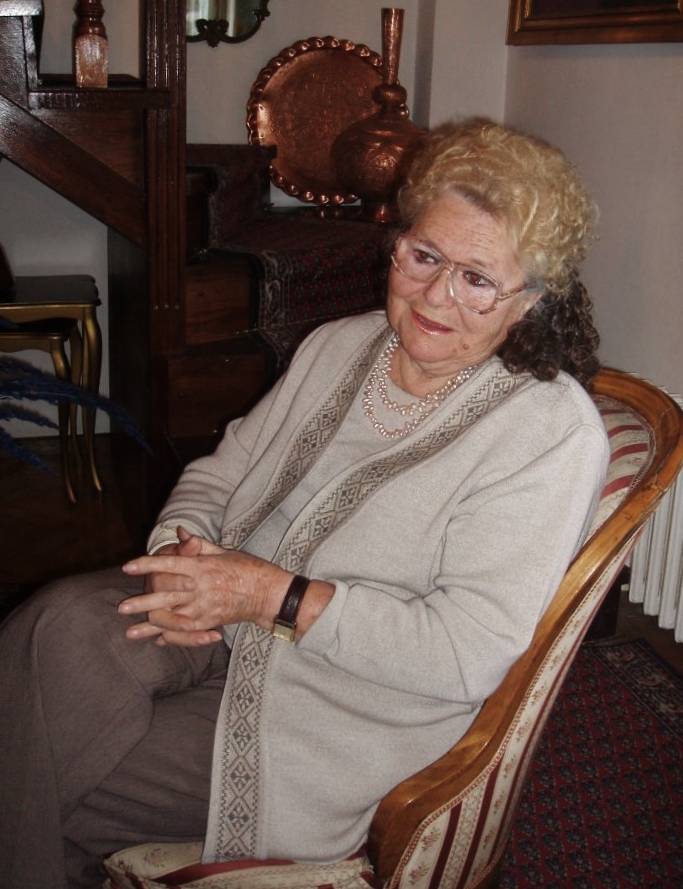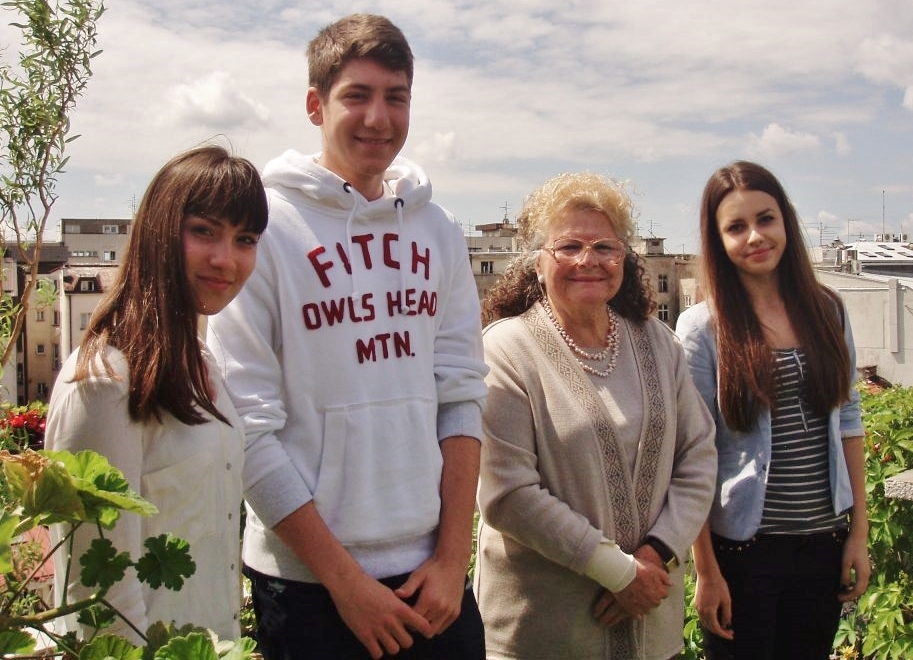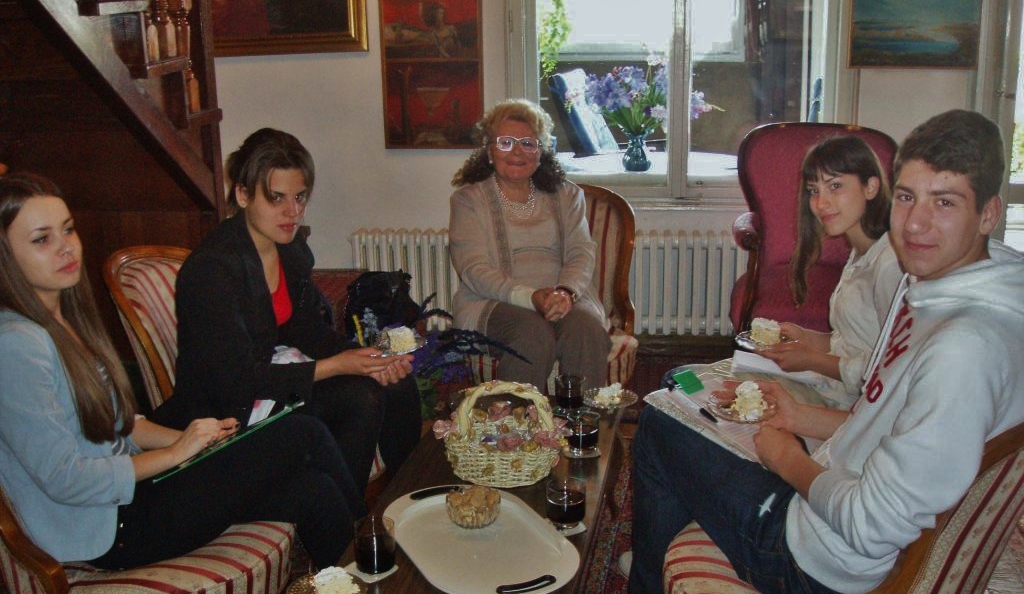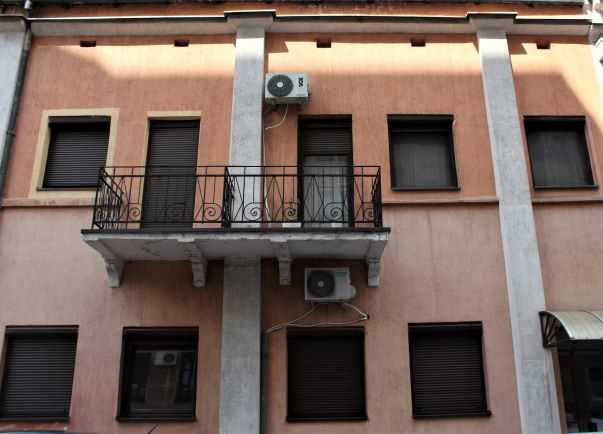Breda Kalef (1930-2023) was one of the most important opera singers in the former Yugoslavia. She was born in the Sephardic Kalef family, which originates from Spain, and which moved to Belgrade in the 16th century.During the Second World War, the family of Jakov Kalef and his wife Antonija ( Ograjenšek) experienced the fate of other Belgrade Jews. Father Avram Kalef, as a disabled person, after the occupation of Belgrade, was transferred to the Jewish Hospital together with his mother. His wife, originally from Slovenia, with her two daughters, was left without means of subsistence. Antonija and her two daughters Matilda and Rachel sought protection from the priest of the Church of St. Cyril and Methodius, led by the Catholic Order of Lazarists. The Lazarists are a Catholic order that originated in the Middle Ages in France and are dedicated to charitable work and helping the helpless.
The priest Andrej Tumpej provided protection to Antonija and her daughters, issued them false documents, so the girls changed their names; Matilda became Lydia, and Rachel - Breda. They hid on Banovo brdo, and had protection in the church where they started singing in the choir. Rachel, now Breda, while singing in the choir, discovered her precious talent, which enabled her to later become an opera singer. She, in honor of her father Tumpey, left the name he gave her, and continued to build her career as an opera singer-mezzo soprano. After their release, the family learned a terrible truth - that all members of the Kalef family were killed in a truck - a gas chamber, called dusegupka, or shot in camps around Belgrade. The film "Three Promises" based on this story was made by the organization https://www.centropa.org and can be found at this link
https://www.centropa.org/centropa-cinema/matilda-kalef-three-promises?language=sr
The film Three Promises was seen by many viewers, especially students around the world. The response was extremely positive, especially among students from the United States, so an interview with Brad Kalef was organised. The interview was conducted by students of the Fourteenth Belgrade Gymnasium, the Thirteenth Belgrade Gymnasium and the Sixth Belgrade Gymnasium on May 14, 2013. The questions were devised by Belgrade students together with American students from a school in Detroit. Teacher Branislava Stevanović (XIII Belgrade Gymnasium) was the organiser of this event.
- If you could go back in time, what would you change?
Breda : Well, I'd change a lot of things. You know when they say 'better in grave then a slave', I disagree with that because there's a way out of the slavery, but you can't escape death. I would have changed the whole approach of how things were done, because I'd still have my family today.
- What was going through your mind when Jewish families began to come into Belgrade after fleeing the Nazis in Northern and Western Europe?
Breda: I didn't know that at the time. I wasn't aware of my surroundings due to my young age. Only when I felt it on my own skin, did I realise the horror of what was happening

Breda Kalef with students of Belgrade high schools, 2013
- What are some thoughts that went through your head when you realised you were the only two from your family still alive following the Holocaust?
Breda: That was terrifying. We kept hoping that somebody from our family would appear. It's something that can't be described, that dreadful emptiness.
- If you could say anything to Adolf Hitler and the other Nazi leaders what would you say?
Breda: I really don't know what I would say to them. I wouldn't even like to meet them, especially Hitler. All in all, their deeds were those of psychos, of people with twisted minds. But no matter how hard they try, they can't destroy one nation with the Holocaust.
- Do you ever get angry at other people around you during the Holocaust because they didn’t stand up for the Jews?
Breda: Well, there were a plenty of people who were assisting Jews, so you couldn't be angry with everyone, but only with some of them. Even in Serbia, I think that all the Jews should not have been given to the Germans. They were separated as hostages. After a killing of the first German, every second hostage was killed too, and among them were all the men of our family.
- In your opinion, why did the Nazis hate the Jews so much?
Breda: I can’t answer that. As I mentioned, those were the twisted minds.
- Were you ever bullied or picked on in any of the schools that you went to?
Breda: No. They didn't even know who I was. When I came back and started 5th grade of high school you kids attend today (The Thirteenth Belgrade Grammar School), I was just a new girl. I wasn't abused, especially because I was a very good singer and an athlete. That was probably why I fit in that easily. I was also interested in table tennis. First, I became a table tennis champion of Belgrade, and a bit later of the whole Serbia, I was very popular, but poor too.
I was born as Rachel Kalef, and of course, I later got a new name - Breda. When I entered high school in Cukarica, I couldn't get used to it. Professors and friends were calling me by my new name, and I was just sitting there. After a while I realised that was actually me they were calling. It was funny and sad at the same time.
.
Breda Kalef with students of Belgrade high schools, 2013
- How do you remember the period of your life before the war?
Breda: It was very nice. We were a very happy middle class family. We had a nice holiday, a lot of friends, a big family. It was a very carefree childhood. But it stopped ... The Jewish holidays were so wonderful. Especially Easter ... Then the whole family gathers. Summer vacations were also pleasant ..
The Kalef house in Gospodar Jovanova street
- Do you remember any bright moments during the war?
Breda: I always sang in the church where a lot of people came, not just Catholics, to hear angelic voices. And Father Tumpey was a modern priest, that's where I started playing table tennis. I also learned to play the tambourine. Father Tumpej gathered the young people to remove them from the street, because the streets were dangerous. There were bright moments.
- After the end of the war, were you still exposed to any kind of discrimination where you lived?
Breda: No, I moved from Čukarica (Belgrade municipality) to the city center where I was actually born. Nobody knew who I was. I was still Breda Kalef, but no one knew what I had survived. It was so disturbing to me that I decided to keep it a secret. Later, in a newspaper interview, I described the event that happened to me. Everyone was shocked. After that, I started receiving telegrams and letters from people who said they didn't know what I was going through. People were really touched and supported, especially my friends from school and theater.



